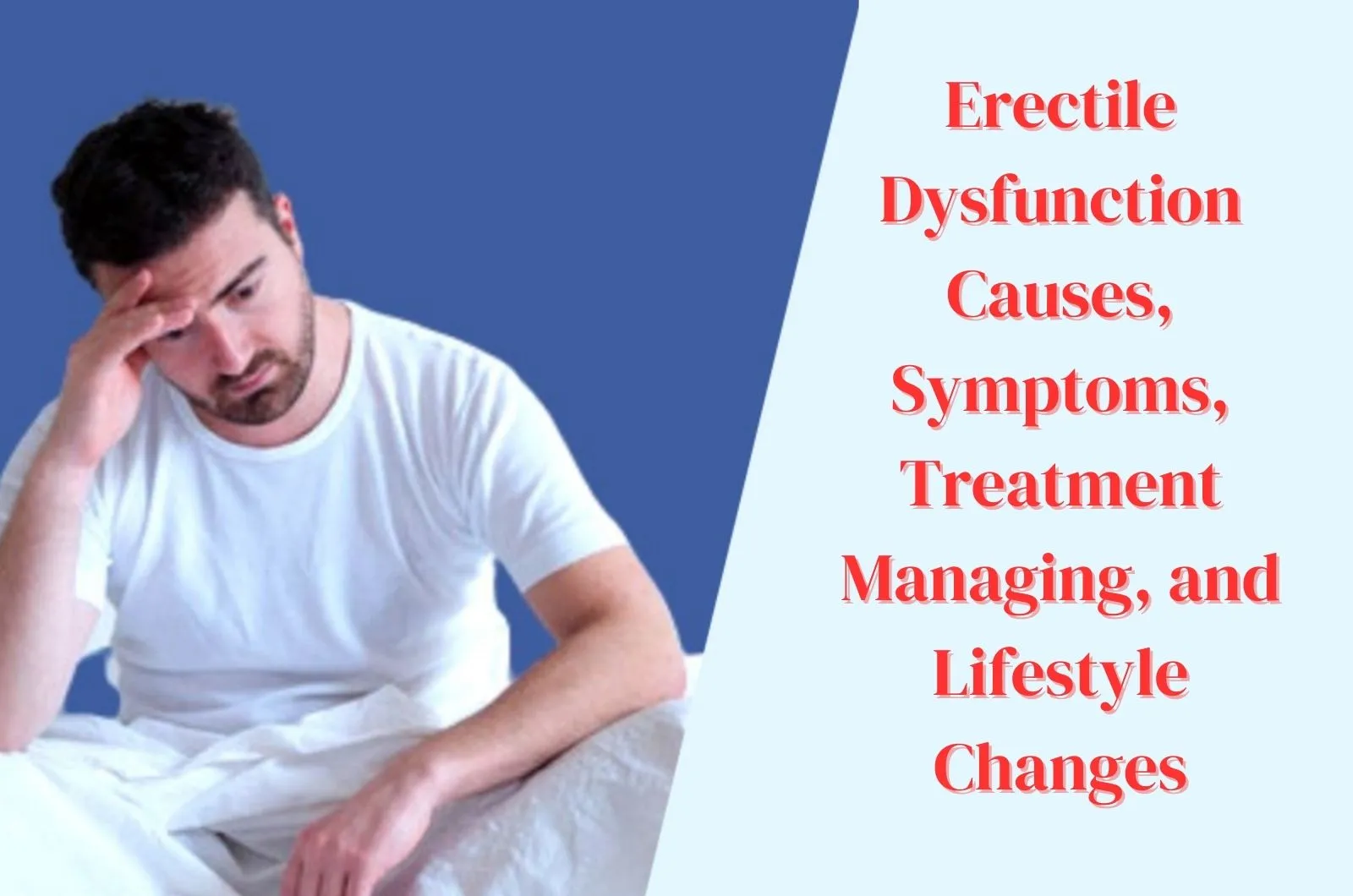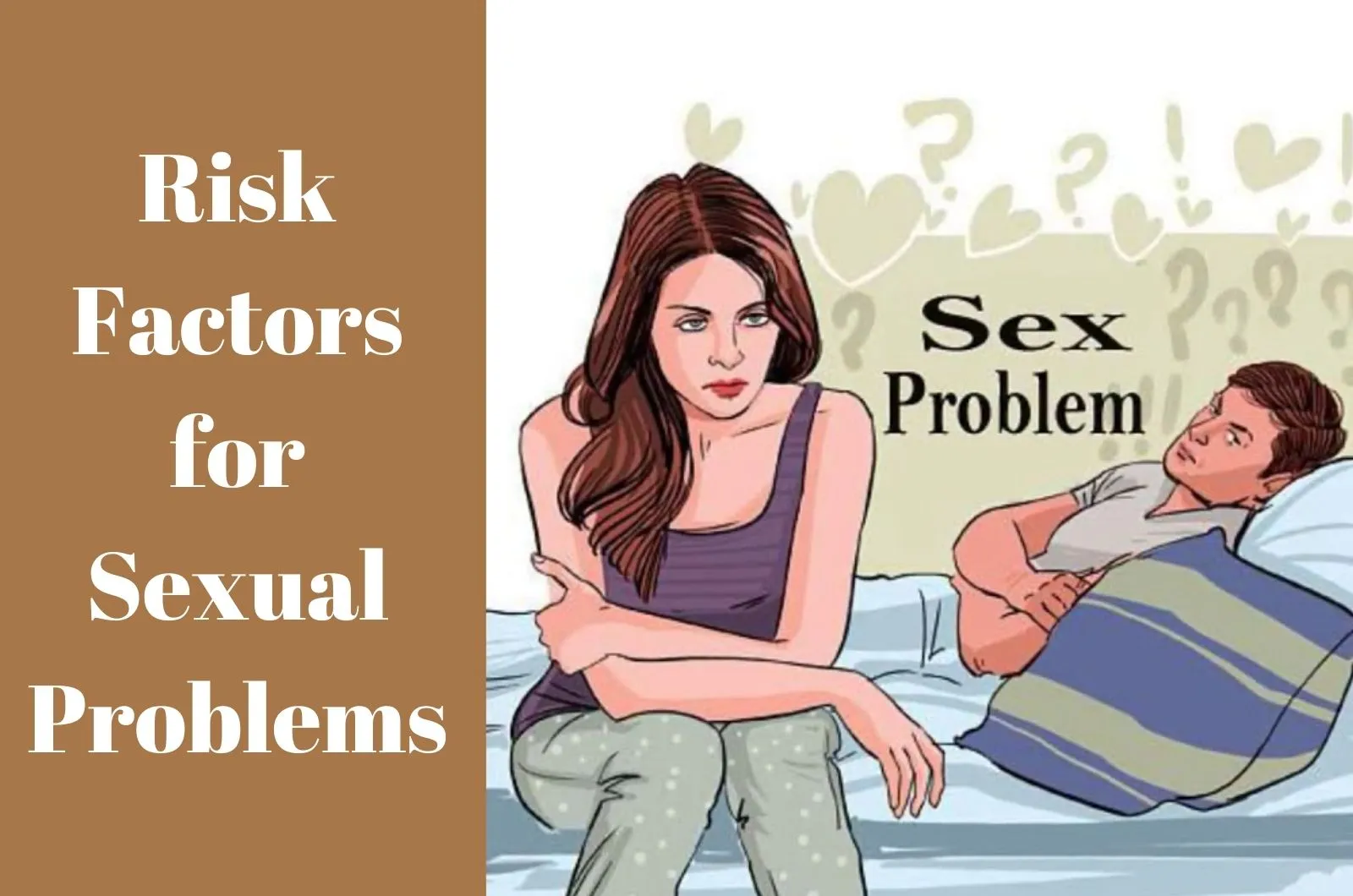Introduction
This article discusses erectile dysfunction in detail, including its causes, how it can be treated, and answers to common questions.
What is Erectile dysfunction?
Erectile dysfunction (ED), or impotence, is a medical condition characterized by the persistent inability to achieve or maintain an erection firm enough for satisfactory sexual activity. This condition can affect men of all ages, but it becomes more common as they age.
What Causes Erectile Dysfunction?
Physical Reasons
Erectile dysfunction can be tied to different physical conditions, like:
- Heart problems
- Diabetes
- High blood pressure
- Being overweight
- Hormonal imbalances
Emotional Reasons
What’s going on in your mind can affect your sexual health. Emotional reasons for ED include:
- Feeling anxious or stressed
- Being depressed
- Having problems in a relationship
- Feeling anxious about performance
Lifestyle Factors
Unhealthy habits and the way you live can also play a part in ED:
- Smoking
- Drinking too much alcohol
- Using drugs
- Not being active
How Do Doctors Diagnose Erectile Dysfunction?
Figuring out if you have ED involves looking at a bunch of things, like:
- Your medical history
- A physical check-up
- Blood tests
- Talking about how you feel
- Tests like ultrasound scans
Medicine You Take by Mouth
Doctors often prescribe pills that fall into a group called phosphodiesterase type 5 (PDE5) inhibitors. Some common ones are:
- Sildenafil (Viagra)
- Tadalafil (Cialis)
- Vardenafil (Levitra)
Using Devices to Get an Erection
There are non-invasive devices that can help you get an erection. They work by creating a vacuum that draws blood into your penis.
Surgery to Help With Erections
Surgery to implant implants in the penis is an option for more serious cases. These implants can give you an erection when you want one and are discreet.
Talking to a Therapist
Therapies focusing on your emotions can help, like cognitive-behavioral therapy (CBT) and counseling for couples.
Trying Other Natural Remedies
Some people try things like ginseng, L-arginine, and acupuncture. But it’s not always clear how well they work, so it’s a good idea to talk to a doctor before you try them.
Erectile dysfunction (ED) shows up in different ways:
- Difficulty achieving an erection: Inconsistent ability to attain or maintain the firmness necessary for sexual activity.
- Reduced sexual desire: Decreased interest in engaging in sexual activities.
- Premature ejaculation: Ejaculation occurs sooner than desired during intercourse.
- Delayed ejaculation: Difficulty or inability to ejaculate even with prolonged stimulation.
- Softer erections: Erections that are less firm or not sustained.
- Lack of morning erections: Absence of spontaneous morning erections.
- Anxiety or stress: Psychological factors causing or exacerbating ED.
- Relationship issues: Strain due to sexual difficulties affecting intimacy.
- Low self-esteem: ED’s impact on self-confidence and self-worth.
- Depression: Persistent sadness related to sexual performance struggles.
Erectile Dysfunction (ED) manifests through various symptoms
- Problems getting an erection: Inconsistent ability to attain or maintain the firmness necessary for sexual activity.
- Reduced sexual desire: Decreased interest in engaging in sexual activities.
- Premature ejaculation: Ejaculation occurs sooner than desired during intercourse.
- Delayed ejaculation: Difficulty or inability to ejaculate even with prolonged stimulation.
- Softer erections: Erections that are less firm or not sustained.
- Lack of morning erections: Absence of spontaneous morning erections.
- Anxiety or stress: Psychological factors causing or exacerbating ED.
- Relationship issues: Strain due to sexual difficulties affecting intimacy.
- Low self-esteem: ED’s impact on self-confidence and self-worth.
- Depression: Persistent sadness related to sexual performance struggles.

Effective Treatments for Erectile Dysfunction
Lifestyle Modifications
Simple lifestyle changes can have a positive impact on ED:
- Getting regular exercise
- Eating a balanced diet
- Managing your weight
- Finding ways to relax and lower stress
Oral Medications
Phosphodiesterase type 5 (PDE5) inhibitors are commonly prescribed oral medications, including:
- Sildenafil (Viagra)
- Tadalafil (Cialis)
- Vardenafil (Levitra)
Vacuum Erection Devices (VEDs)
VEDs are non-invasive devices that create a vacuum, drawing blood into the penis to induce an erection.
Penile Implants
For severe cases, penile implants are an option. They provide on-demand erections and are discreet and effective.
Psychotherapy and Counseling
Therapies addressing psychological factors include cognitive-behavioral therapy (CBT) and couples counseling.
Alternative and Herbal Remedies
Some individuals explore natural remedies like ginseng, L-arginine, and acupuncture. However, their efficacy varies, and consultation with a healthcare professional is advised.
FAQ’s about Erectile Dysfunction
Ques:- Can ED be prevented?
Ans:- While some risk factors are uncontrollable, maintaining A healthy lifestyle can make you less likely to develop ED.
Ques:- Is ED a natural part of aging?
Ans:- While age can increase the likelihood of ED, it is not an inevitable part of aging. Many older adults maintain healthy sexual function.
Ques:- Are ED medications suitable for everyone?
Ans:- No, ED medicines may not be safe for people with certain health problems or taking certain medicines. It is very important to talk to a doctor.
Ques:- Can psychological factors alone cause ED?
Ans:- Yes, psychological factors can lead to ED. Stress, anxiety, and depression can affect sexual performance.
Ques:- What is the success rate of penile implants?
Ans:- Penile implants have a high success rate, with most men and their partners reporting satisfaction with the results.
Ques:- How do I discuss ED with my partner?
Ans:- Open communication is key. Choose a comfortable and private setting to discuss concerns and explore potential solutions together.

How to Diagnose and Treat Erectile Dysfunction: A Step-by-Step Guide
Step 1: Understanding Erectile Problems
Start by understanding what it means when things aren’t working. Erectile problems happen when you can’t get or keep an erection for sex. Many things, like your body, mind, and how you live, can mess with it.
Step 2: Spotting the Signs
Pay attention to clues that something’s off. Like not being able to get hard, losing interest in sex, or having a tough time finishing. If these things happen a lot, talk to a doctor.
Step 3: Get Expert Help.
Talk to a doctor who knows about this. Tell them what’s happening and anything else important. They’ll ask questions and check things out to figure out what’s causing the problem.
Step 4: Talking About Your Past
The doctor will ask about your health history, like if you have any long-term illnesses, the pills you take, and how you live. Being honest helps them figure out why you’re having trouble.
Step 5: Checking Your Body
The doctor will look at your health by checking things like your blood pressure, your private parts, and how healthy you are overall. Doing these checks helps them find out why things aren’t working.
Step 6: Blood Tests
They might take blood to see what’s happening inside. This can show if things like hormones, blood sugar, or cholesterol might be causing the problem.
Step 7: Talking About Your Feelings
How you feel inside can sometimes mess with your ability to get or keep an erection. The doctor might ask how you’re feeling to see if things like stress or feeling sad could be causing the issue.
Step 8: Using Machines to Look Inside
Sometimes, the doctor might use special machines to examine how blood moves in your private area. This can help them see if something’s blocking the blood and causing the problem.
Step 9: Picking the Right Fix
Once they figure out what’s happening, the doctor will talk to you about improving things. You might need to change your life, take medicine, talk to someone about your feelings, or do other things to fix the problem.
Step 10: Changing How You Live
If things worsen the problem, the doctor might tell you to change some things, like moving your body more, eating better food, keeping your weight in check, finding ways to relax, and cutting down on drinking and smoking.
Step 11: Pills You Can Take
some pills to help you get an erection. They make blood flow better down there. You might have heard of names like Viagra, Cialis, or Levitra. Your doctor can tell you if these can help.
Step 12: Sucking the Air In
There are things called vacuum erection devices (VEDs) that don’t need surgery. They make a vacuum that pulls blood into your private parts, making them hard. Your doctor will teach you how to use them right.
Step 13: Surgery for a Fix
In serious cases, you might need surgery to get things working again. The doctor can use devices that help you get hard when you want to.
Step 14: Talking About Your Head
Sometimes, what’s going on in your head is causing the problem. Like a therapist, talking to someone who knows about feelings and relationships can help.
Step 15: Trying Other Stuff
Some folks try herbs or acupuncture to help with the issue. Before you try these, talk to your doctor to see if they might work for you.
Step 16: Keeping the Good Times Going
It’s smart to keep checking with your doctor even after things start working again. They can keep you fit and help you catch problems before they get big.
Step 17: Keeping It Real with Your Partner
Talking with your partner about what you’re going through is important. Sharing how you feel and what you’re dealing with can strengthen your relationship when facing challenges.
Step 18: Staying in Touch with the Doctor.
Make sure to attend the follow-up appointments your doctor sets up. They help track how things are going and make any changes if needed.
Step 19: Take Care of You
Keep up with healthy habits like eating well, managing stress, and caring for your mind. This keeps your sexual health and overall well-being on track for the long run.
Step 20: Keeping an Eye on Things
Even after you’re back on track, regular check-ups are important. They help make sure you stay healthy and catch any issues early.
By following these simple steps, you can take control of understanding and dealing with erectile issues, improving your sex life and overall quality of life.
Conclusion
Erectile dysfunction is a common condition that can impact various aspects of a man’s life. However, understanding its causes and available treatments empowers individuals to take control of their sexual health. Whether through lifestyle changes, medications, or other interventions, ED is a treatable condition that need not define one’s quality of life.
Remember, seeking professional medical advice is essential for accurate diagnosis and tailored treatment. By addressing ED head-on and fostering open communication with healthcare providers and partners, individuals can regain confidence and enjoy a fulfilling and satisfying sexual life.



